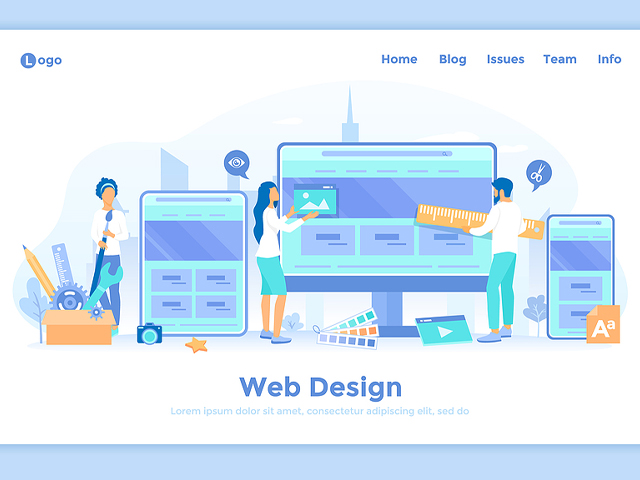
If you want to be a Software Engineer, it is useful to have a technical background and some coding knowledge. It is not a requirement to have a software engineering degree. However, you will need to possess a combination of programming knowledge and technical skills to be able to pursue a successful career in this field.
It can be a difficult job when you are a Software Engineer; however, thankfully, there are numerous open-source, free tools out there to make life easier. Some of the vital tools you will want to familiarize yourself with to get comfortable completing software engineering tasks include bug tracking, code review, version control and software development.
Other important tools such as Codenvy, GitHub, ProofHub and Adobe Dreamweaver CC prove to be invaluable. Software Engineers rely on these tools to save time and energy.
Discover the Fundamentals of Software Engineering
If you desire to become a Software Engineer, it is necessary to learn the fundamentals of software engineering. This typically starts with learning code.
While many Software Engineers typically leave the majority of programming work to Developers and other team experts, it is still vital for a Software Engineer to have the ability to examine code at any point during the development process to spot issues or solve problems.
Learn one of the main computer languages to start out with (Python or HTML) and then gradually learn others. The more programming languages a Software Engineer masters, the better performance you will offer.
Note that the fundamentals of software engineering don't revolve around learning programming languages. They also cover development and the basic underlying principles of design.
For example, Software Engineers need to know object-oriented languages such as JavaScript and Python, but they also offer a deeper understanding on a theoretical level of what object-oriented programming consists of. Additional software engineering fundamentals include concepts such as algorithms, data structures, learning how to use project management methodologies and tools and comprehending the software life cycle. All these strategies need to be understood to ensure projects stay on time and budget.
How to Become Certified
There are plenty of options for people who are considering a job as a Software Engineer. One can pursue their bachelor's degree or master's degree if they are going the degree route. Others may choose to upgrade any gaps in their education with shorter bootcamp options.
A coding bootcamp is a great option for individuals who possess certain technical abilities but have little programming experience. If they are seeking a fresh career in software engineering, an immersive bootcamp in coding can teach modern programming languages in an expedited manner. If you have a bachelor's degree in computer science or similar education close to software engineering, a coding bootcamp may be the only upgrade you require to enjoy this new career.
Specializing in Software Engineering or Certification
There are 2 main ways to specialize in software engineering: systems development and applications. If you are seeking a new career as a software engineer, it is wise to consider if you see yourself focusing on a niche inside of these larger specializations. Software Engineers can secure jobs with a focus on items including systems maintenance, DevOps which combines information technology operations and software development, or full stack-web development.
There are many certifications available to give software engineers a boost with job searches. The Institute of Certification of Computing Professionals Certified Software Engineer, the IEEE Computer Society's Certified Software Development Professional and (ISC)²'s Certified Secure Software Lifecycle Professional are some of the popular certification programs available.
There are additional certification options available from other vendors including Cisco, Oracle and Microsoft. A quick online search will reveal a multitude of options.
Showcase your Skills by Posting Projects
Use platforms such as GitHub to post projects that you are proud to show off. Remember, software engineering is about much more than programming. It is important to show potential employers your skills and abilities.
While you don't need a host of open-source projects to secure a job, this will prove your programming abilities somewhat. It is essential that you can show your work no matter which industry you are working with.
Creating a solid GitHub repository can help you sail through the initial recruiting phase. It may give a job candidate an edge over the competition when compared with a similar experience or background level. A bonus is that all of this extra practice building and polishing your portfolio will develop your problem-solving and technical abilities.
Is it possible to Become a Software Engineer without Experience?
Yes, you may be a Software Engineer without any previous experience if you can acquire the correct education, soft skills and technical abilities. Being able to solve problems is an essential component of being a successful Software Engineer.
A poll of professional developers across the globe by Stack Overflow showed that 75% of Software Engineers possessed a bachelor's degree or higher. However, that doesn't mean that every development professional obtained their degree in software engineering or a relevant field.
Taking a coding bootcamp is the most direct way to grow your career in software engineering if you don't have a degree in computer science or software engineering. This route is much faster and less expensive compared to a traditional engineering degree. A reputable bootcamp will offer you a definitive insight into the fundamentals of development and different programming languages required to gain an entry-level job in this field.
Coding bootcamps deliver the necessary tools to start creating a project portfolio. This can help you launch into the freelancing world or find an entry-level job in software engineering.
Discover fresh Digital Skills with Continual Upgrading
Lifelong learning is one of the hallmarks of being a successful Software Engineer. You will never get bored as technology continually evolves. There will continually be new programming languages to learn, upgraded tech and new tools. There will be new ways to approach software development and project management.
This continuous evolution is one of the reasons technologies remain exciting. Even though certain computer science approaches and principles have stayed the same for years, the software development realm is continually changing.
Understanding UX design, SEO, digital marketing, product management and data science will deepen a Developer's concept of technology. They will be able to relate to clients and colleagues, organizations, and industries. The skills and training that a Software Engineer or Developer undergoes are endless.
As you progress in your career, make it a habit to take online tutorials, attend conferences, attend bootcamps and take classes. This ongoing commitment will help you stand above the crowd from other Software Engineers and keep your skills sharp.
What is the Demand for Software Engineers?
The demand for Software Engineers has been abundant for many years and is expected to increase further in the future. By 2029 the U.S. government forecasts the role of Software Developer to expand by twenty-one percent.











